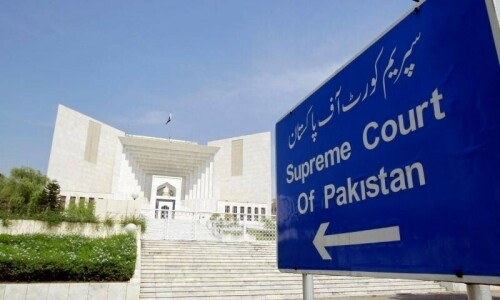THE PTI government, that is often asked to turn words into deeds, is out to fix the bureaucracy. It has given unprecedented powers to the Central Selection Board that promotes senior civil servants
In the changed equation, the CSB has 30 discretionary marks which can make or break a promotion. The Civil Servants Promotion (BPS-18 to BPS-21) Rules, 2019, set a minimum of 60 marks for promotion for BS-18, 65 for BS-19, 70 for BS-20 and 75 for BS-21.
Earlier, the CSB had just 15 marks to use at its discretion. The new formula has 40 marks reserved for the annual confidential reports and 30 for professional courses as against the previous ratio of 50 marks for ACRs, 35 for professional courses and 15 for the CSB.
As pointed out in this paper yesterday, “…under the recently notified rules, an officer despite getting 90pc marks in the heads of ACR and professional courses could not get a promotion without obtaining 70-80pc marks from the CSB”. The move will be seen in the context of the constant complaints the prime minister and his team make about an unresponsive bureaucracy.
The PTI government has, time and again, been frustrated by what it sees as a bureaucracy trained by and still beholden in some ways to its predecessor, the PML-N.
Bureaucratic reshuffles have come at a frequency that creates serious doubts about the stability of the government, which is now well into its second year in power.
The new criteria for promoting senior civil servants will definitely give the rulers that much more room to appoint officers of their choice to crucial posts. But at first glance, it is too one-dimensional a move to be taken as a defining moment in Pakistan’s history of the top bureaucracy.
For instance, it is all very well for a board to gauge the competence and integrity of an officer awaiting promotion, but how do the reformers plan to address the issue of political patronage and victimisation that so often dictates a bureaucrat’s career?
Also, since there is no system in place which would force the superseded officers to quit the service, how will the government deal with the long-standing problem of low morale among those not deemed fit for promotion?
Although not on the same scale as some previous efforts to take control of the bureaucracy, this change in rules for promotion will still be seen as a continuation of attempts made by rulers in the past.
Gen Ayub Khan allowed induction into the civil bureaucracy from the military, while Z.A. Bhutto unsuccessfully tried to reinvent the bureaucracy by introducing the infamous lateral service system.
Gen Ziaul Haq then opened the gates of uninterrupted induction into the civil bureaucracy. The effort at reform could fizzle out fast if it doesn’t resolve the problems arising out of inductions from outside and personal likes and dislikes.
Published in Dawn, December 12th, 2019














































